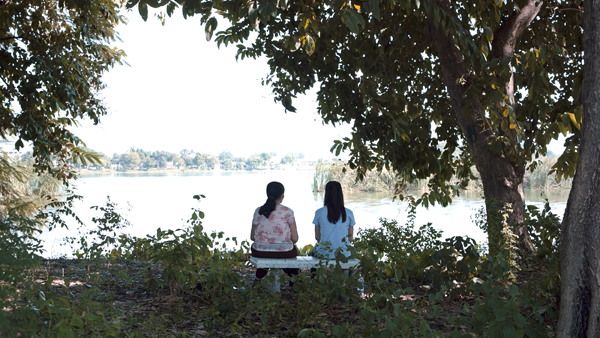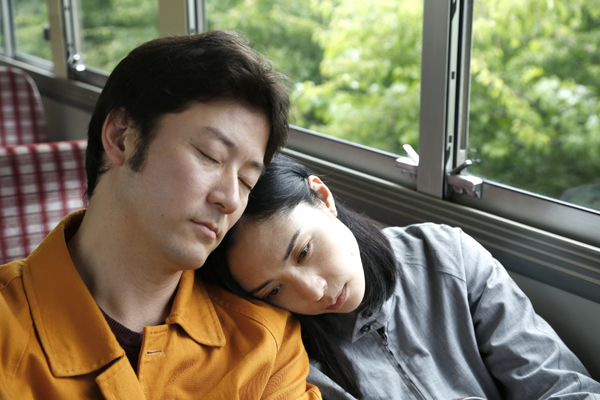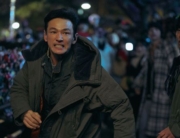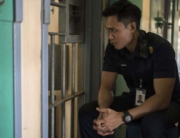The New York Film Festival’s impressive lineup this year includes a number of celebrated directors from Asia. Perhaps the most anticipated of these, prior to its Cannes premiere, was Hou Hsiao-hsien’s The Assassin, his exquisite take on the martial arts film, which netted Hou a best director prize at Cannes. Hou will make a rare visit to New York for the screenings, as well as for his 1983 film The Boys from Fengkuei (in a new digital restoration). He will also participate in “On Cinema: Hou Hsiao-hsien,” an extended discussion about his career and cinema influences.
More NYFF highlights this year include Mountains May Depart, the latest from Chinese director Jia Zhangke, a decades-spanning evocation of China’s rapid changes, told through the lens of a love triangle. Korean auteur Hong Sangsoo continues his beguiling games of narrative structure and romantic complications with Right Now, Wrong Then. It tells the story of a man meeting a woman twice, altering details and camera angles to reveal aspects of the characters hidden from the audience in the first telling. The lineup also includes new digital restorations of two classic epics: Ran, Akira Kurosawa’s 1985 adaptation of King Lear, and King Hu’s 1971 wuxia masterpiece A Touch of Zen.
Two other notable selections are Thai filmmaker Apichatpong Weerasethakul’s Cemetery of Splendor and Japanese director Kiyoshi Kurosawa’s Journey to the Shore, both of which bring ghosts and spirits into the ordinary waking world, but with very different results
Weerasethakul’s exquisitely meditative and mysterious films illuminate the natural landscapes of his native Thailand, and are unique hybrids of narrative and experimental films that often approximate trancelike and hypnotic states. His latest feature, Cemetery of Splendor, builds on the themes and motifs of such previous films as Syndromes and a Century and Uncle Boonmee Who Can Recall His Past Lives to create a beguiling world where the lines between dreams and reality, the dead and the living, and the past and present are not only blurred but practically nonexistent.
It’s set in Weerasethakul’s hometown of Khon Kaen in northeast Thailand (the film’s original Thai title is Love in Khon Kaen), and much of it takes place in a makeshift hospital that was formerly a school. Middle-aged housewife Jen (Jenjira Pongpas Widner) volunteers at the hospital, which houses soldiers who have been infected with a mysterious sleeping sickness that renders them comatose for most of their days. Jen befriends Itt (Bamlop Lomnoi), one of the patients, and in the brief periods when the young man is awake, they spend time together outside the hospital and develop a kind of mother-son relationship. Jen also encounters Keng (Jarinpattra Rueangram), another woman who works at the hospital, a medium who helps family visitors communicate with the comatose patients.
Cemetery of Splendor is, in narrative terms, much more linear than Weerasethakul’s previous works. However, there is no shortage of the uncanny mysteries and the beguiling expressions of the spirit world seeping into everyday existence that are hallmarks of his other films. Here, ancient queens from temple shrines take on human form, a giant amoeba floats among the clouds, and the dead communicate with the living; such phenomena are presented as just as normal and natural as anything else in the world. The beautifully serene, contemplative rhythms belie the fact that Weerasethakul is grappling with the violent history and present of his country, which has gone through successive cycles of domestic strife and military coups. With this film, he implores his country to awaken from its long historical nightmare.
The living and the dead also coexist in an almost mundane manner in Journey to the Shore, the latest from Kiyoshi Kurosawa (Cure, Pulse, Tokyo Sonata), which marks a return to form following the unholy mess that was his previous feature, Real. (In between, he made the very good television miniseries Penance).
The film, based on a novel by Kazumi Yumoto, begins with Mizuki (Eri Fukatsu), a piano teacher who is criticized by the mother of one of her students for her joyless playing. And indeed, she has a depressed air about her, the result of her being widowed: she lost her husband three years ago. However, one day her deceased spouse, Yusuke (Tadanobu Asano), appears in her home back from the dead. This occurs in a way that’s just as matter-of-fact as if he’s just come home from a long trip, which, in fact, he has.
Mizuki, oddly enough, seems to be only mildly startled to see him, and the first words she says to him are to admonish him for not removing his shoes before stepping into the room. Yusuke explains that he drowned at sea, his body eaten by crabs. Yet here he is, as intact as he was when he was alive. He asks Mizuki to accompany him on a trip to revisit the people he got to know and who helped him along the way during the time he was away from her. Mizuki, with little hesitation, agrees to go with him.
The ghosts in Journey—Yusuke isn’t the only one we meet—are different from the spirits we see in other films; they are visible to everyone, not only the deceased’s loved ones or those with special perceptive abilities. They’re pretty much indistinguishable from the living. In fact, some of these ghosts don’t even know they’re dead. They, including Yusuke, have some sort of unfinished business that they must attend to before going on to the afterworld.
This is essentially a road movie, and there are some compelling stops among the way. Fukatsu and Asano, two of Japan’s finest actors, give appealingly nuanced and complex performances, which deepen as details of their past existence as a couple are slowly revealed. Some of the other characters and the ghosts among them also have intriguing aspects to their stories. Unfortunately, Journey suffers from its meandering nature and being overlong, which considerably dilutes the emotional nature of its story. Also, its syrupy, overly melodramatic score is often annoyingly distracting. Still, the film is well worth watching, for its unusual rendering of phantoms and its skilled lead performances.








Leave A Comment